Home Park: Plymouth Argyle
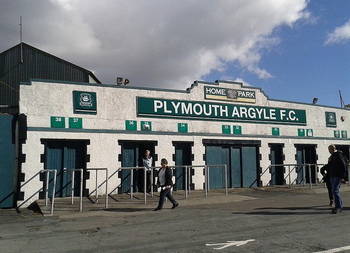
David Sivyer / Flickr.com
Known to the fans as the Theatre of Greens, Home Park has welcomed Plymouth Argyle supporters through its gates since the club made it its permanent residence in 1901. It was heavily bombed during the Second World War and was largely rebuilt in order to be able to host games on the resumption of Football League games in 1945.
Originally used as a rugby ground for the no longer in existence Devonport Albion, Home Park has enjoyed numerous uses over the years. The lease for the land was obtained by Argyle Athletics Club in 1901 and they staged several athletics events there that year. They also allowed some trial matches featuring Argyle Football Club to be played on the space, and when they proved to be more popular than the athletics meetings a decision was made to concentrate on football moving forward.
Stats
| Home Park Stats | |
|---|---|
| Year Opened | 1893 |
| Capacity | 17900 |
| Average Attendance | 15774 |
| Record Attendance | 43596 (Plymouth v Aston Villa (1936)) |
| Pitch Size | 105 x 72 (7560) |
| Nickname | Theatre of Greens |
| Owner | Plymouth Argyle FC |
| Clubs Hosted | Plymouth Argyle |
| First Fixture | Plymouth Argyle v Northampton Town (05/09/1903) |
| Plymouth Argyle Stats | |
|---|---|
| Year Founded | 1886 |
| Nickname | The Pilgrims, Argyle, The Green Army |
| Club Mascot | Pilgrim Pete |
| Rivals | Exeter City, Torquay United, Bristol City, Bristol Rovers, Portsmouth |
| Kit | Green & Gold (Home) / White & Green (Away) |
| Training Ground | Harpers Park |
| Shirt Sponsor | Classic Builders |
| Team Owner | Simon Hallett |
| Record Goalscorer | Sammy Black (184) |
| Record Appearances | Kevin Hodges (620) |
Home Park Photos
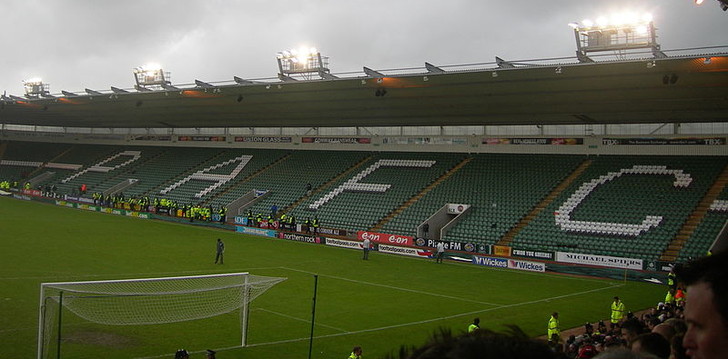
By Gloworm 44 at English Wikipedia [Public domain]
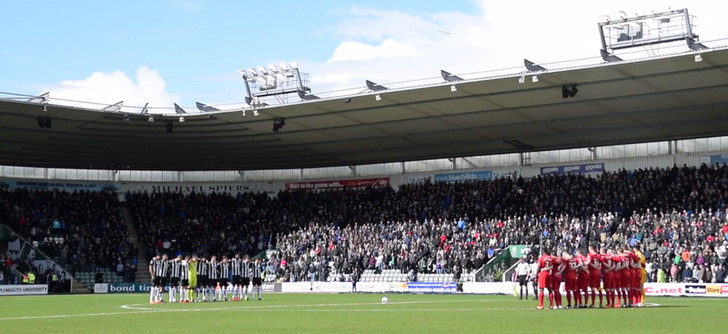
By 10sheere (Own work) [CC BY-SA 4.0]
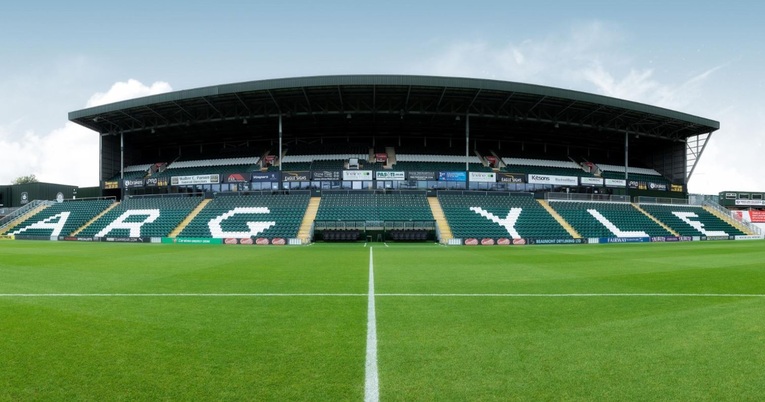
From Plymouth Argyle
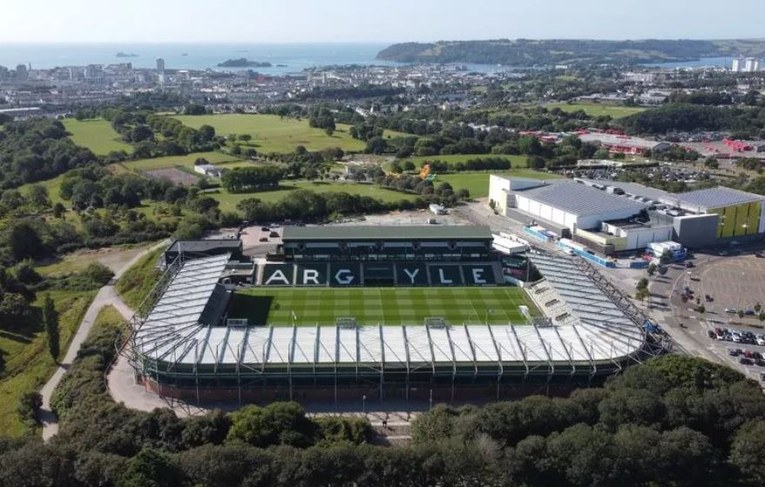
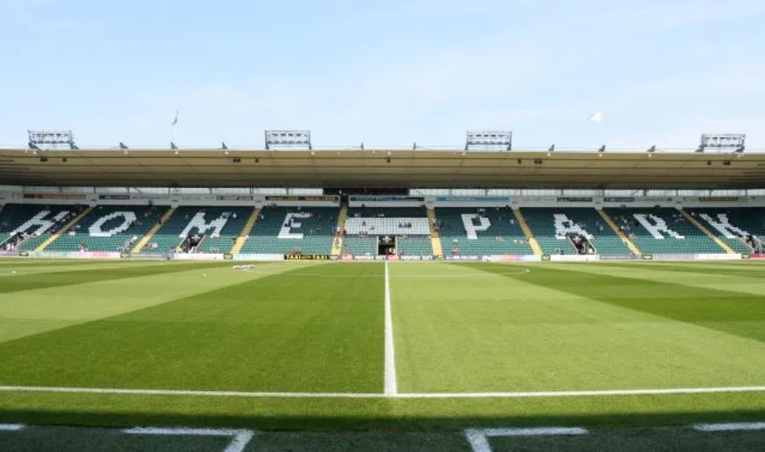
Home Park Seating Plan and Where to Sit
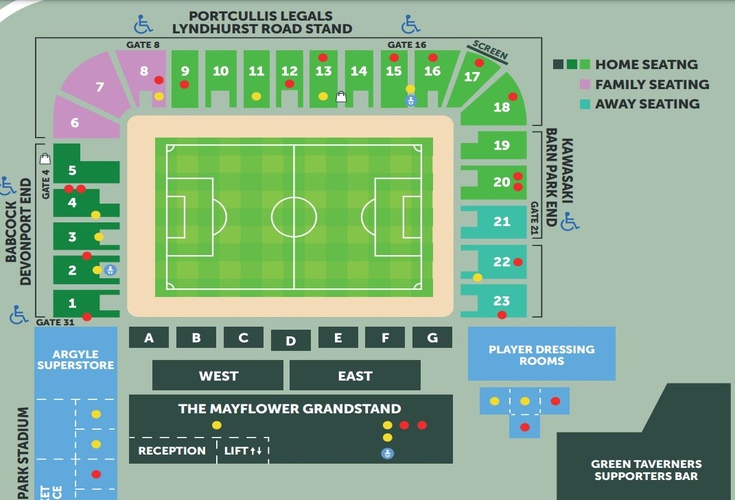
Home Park has four distinct stands, with each offering a different insight into life as an Argyle supporter. The Lyndhurst Stand runs along the side of the pitch and is where the majority of season ticket holders sit. The Devonport End is where the more vocal supporters go, whilst The Barn Park End stands opposite to it and is where the away supporters go. The Mayflower Grandstand is the oldest part of the ground, both literally and in terms of the supporters who sit in it. There are supporting pillars to this section of the stadium, so some views are restricted because of them.
Plymouth Argyle Ticket Prices
Prices for Plymouth Argyle matches aren’t too complicated to understand, with slight changes in cost brought in for sitting in different parts of the ground, and matches categorised as either Silver or Gold. The only other things that affect the cost are when you buy your ticket and how old you are.
Other than that, the prices for adults and concession are shown below:
- Adults: Gold – £25-£28 / Silver – £23-£26
- Concessions: Gold – £21-£23 / Silver – £19-£21
How To Get Plymouth Argyle Tickets
Plymouth Argyle tickets are available online, over the telephone and from the club’s ticket office in person. They will take an extra £0.75 per ticket from you for booking online or £1.50 over the phone or in person. If you want your ticket posting it will cost you £1.50 too.
Where to Buy
Getting To Home Park
Plymouth is on the South coast, so depending on where you live it’s either likely to be dead close to you or dead far away. Here are some of the travel options:
Train – Plymouth Railway Station is a twenty minute walk from the ground and is served by trains from London. Expect it to take about three hours to get there from Paddington, mind.
Bus – Buses from Plymouth city centre to Milehouse will take you to the stadium, should you not fancy the walk.
Car – Do whatever you need to do to get yourself on the A38 (nothing dangerous though). Follow it until the exit for the A386 then come off and follow the signs for the stadium. Sounds easy when you say it like that, hey?
By Air – Exeter Airport is about fifty miles from the ground, which will take you between an hour and an hour and a half to drive or two hours on public transport.
Taxi – Getting a taxi from the train station to the ground will take less than ten minutes and should cost no more than £12.
Parking Near Home Park
There is a large car park run by the council right outside the ground that is free to use on match days. If that doesn’t tickle your fancy for some reason then there are good park and ride systems available too.
Useful Resources
- Parking - Just Park
Home Park Hotels
Plymouth offers the usual amount of Bed & Breakfasts and hotels that you’d expect to find in a coastal town. Here are some of our favourites:
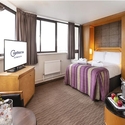
Copthorne Hotel Plymouth - £106+
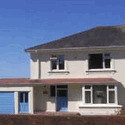
Alma Lodge Guest House - £60+
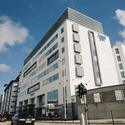
Leonardo Hotel Plymouth - £80+
Pubs and Bars Near Home Park
Seaside towns often have delightful seaside free houses in which to enjoy a seaside shandy. Here are some of our favourites:
The Britannia Inn
The Cherry Tree Pub
The Hyde Park
Facilities
The facilities at Home Park are very good even if they’re not excellent. You’ll get all of the usual things you’d expect from a decent stadium apart from the fact that the concourses aren’t particularly large.
Prices
- Programme: £3.5
- Pie: £4.5
- Cup of tea: £2.2
- Beer: £5
Hospitality
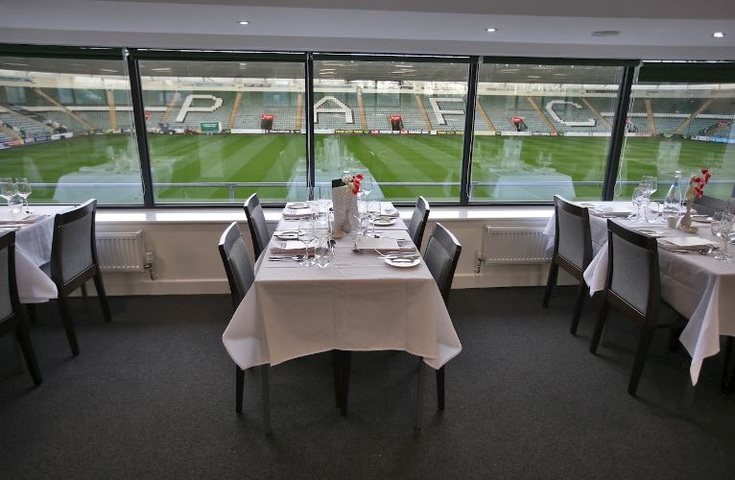
The hospitality offerings at Home Park have been broken down into Diamond, Platinum, and Gold ‘clubs’, with each club offering a slightly scaled up experience than the last. These are available seasonally or match by match, and include things like bubbly on arrival, 3 course meal, pre and post match entertainment, padded seats with excellent views of the pitch, etc. The specifics depends on the package you go for but it’s that sort of thing you’ll be getting.
Private Hire
Plymouth Argyle weirdly refer to their events packages as ‘Non Match-Day Hospitality’, though what you get is largely the same whatever name they call it. Christenings, birthday parties, conferences, product launches and presentations have all been held at Home Park in the past with great success. They say they will make each event unique, so rather than pre-package options for you, it sounds as though they will tailor the day to fit your needs.
Stadium Tours & Museum
Tours are available usually once or twice a month, and are a bit more special than most other clubs. They cost £30 per person and last two hours, with the guide a knowledgeable club figure who will lead you through the dressing rooms, pitch side, the dugouts, media suite, etc.
The reason for the extra cost is because they have bundled in a £10 voucher for the shop too, as well as a cream tea at the end of the tour. Season ticket holders get £5 off.
About Plymouth Argyle
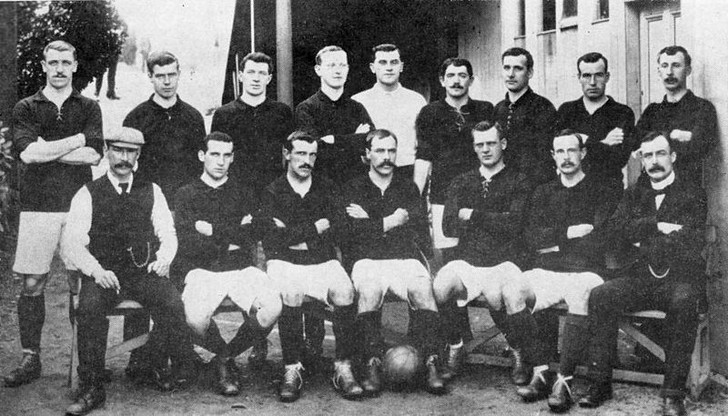
Formed as Argyle Football Club in 1893, they became professional in 1903 and changed their name to Plymouth Argyle in the same year. The club’s nickname of ‘The Pilgrims’ comes from the fact that a group of religious people left the city for the New World back in 1620. The famous Mayflower ship that carried them all features on the club’s crest, too. Despite the fact that the club holds the record for the most third-tier titles won, Plymouth is the largest city in England that has never hosted top-flight football.
As is the case with most clubs from a specific area of the country, Plymouth Argyle enjoy a strong rivalry with other sides from the county of Devon. Exeter City, Torquay United, Bristol City, Bristol Rovers and Portsmouth have all felt the wrath of the Argyle supporters over the years. The Plymouth v Portsmouth match is known as the ‘Dockyard Derby’, with both cities having strong naval connections.
Home Park History
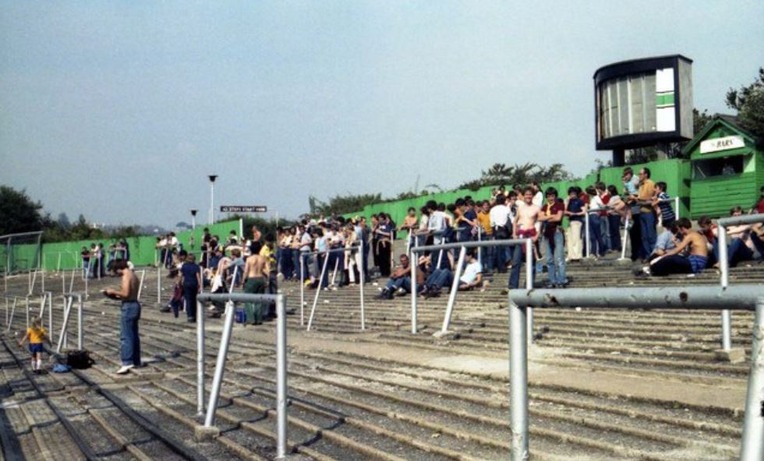
Home Park as it is today is a very different proposition to the ground that stood in its place when it opened in 1893. Aside from anything else, that original ground was almost entirely destroyed by bombs in the Second World War, as German planes made efforts to disrupt the British Navy by bombing Plymouth harbour. It was rebuilt in time for the return of football after the war.
The stadium went through more renovation plans at the turn of the millennium. The new Devonport End opened in 2001, as did the redeveloped Barn Park End. The Lyndhurst Stand was rebuilt and reopened the following year. In 2007 they added temporary seats to The Mayflower enclosure and in 2009 the ground was selected to be one of the stadiums used should England win the right to host the World Cup. It didn’t, and the club entered into administration in 2011, at which point the council bought the ground and leased it to the club for £135,000 annually.
Future Developments
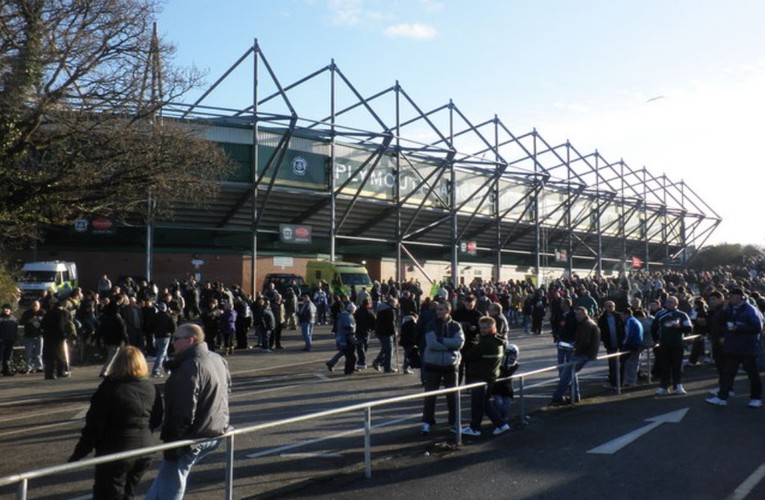
James Brent bought the club in 2011 and announced plans to completely redevelop The Mayflower Grandstand. The club received planning permission to do just that in 2013, with hopes of an ice-rink, cinema and hotel all being built in or near to the stadium. Those plans were later withdrawn, but in 2018 upgrades to the seating, roof, players changing rooms, and guest facilities all took place, and in 2023 work was done to aesthetically upgrade the area adjacent to the Mayflower Grandstand and improve the car park.
The club regularly play to sell out crowds thanks to a period of success, so expansion is being talked about, but no plans are yet in place.
